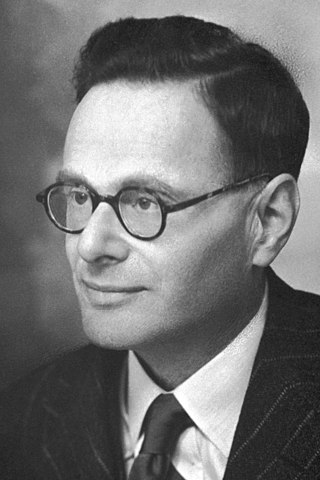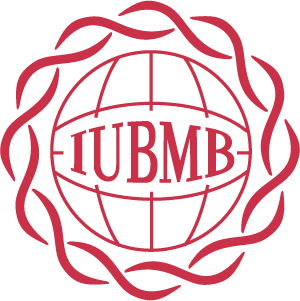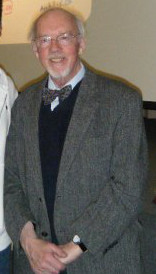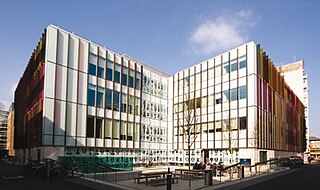
Sir Hans Adolf Krebs, FRS was a German-British biologist, physician and biochemist. He was a pioneer scientist in the study of cellular respiration, a biochemical process in living cells that extracts energy from food and oxygen and makes it available to drive the processes of life. He is best known for his discoveries of two important sequences of chemical reactions that take place in the cells of nearly all organisms, including humans, other than anaerobic microorganisms, namely the citric acid cycle and the urea cycle. The former, often eponymously known as the "Krebs cycle", is the sequence of metabolic reactions that allows cells of oxygen-respiring organisms to obtain far more ATP from the food they consume than anaerobic processes such as glycolysis can supply; and its discovery earned Krebs a Nobel Prize in Physiology or Medicine in 1953. With Hans Kornberg, he also discovered the glyoxylate cycle, a slight variation of the citric acid cycle found in plants, bacteria, protists, and fungi.

Fritz Albert Lipmann was a German-American biochemist and a co-discoverer in 1945 of coenzyme A. For this, together with other research on coenzyme A, he was awarded the Nobel Prize in Physiology or Medicine in 1953.

Feodor Felix Konrad Lynen was a German biochemist. In 1964 he won the Nobel Prize in Physiology or Medicine together with Konrad Bloch for their discoveries concerning the mechanism and regulation of cholesterol and fatty acid metabolism while he was director of the Max-Planck Institute for Cellular Chemistry in Munich.

Jan Ingemar Stenmark is a Swedish former World Cup alpine ski racer. He is regarded as a legendary skier and one of the most prominent Swedish athletes ever, having won several Olympic medals and world cups during his career. When he retired in 1989, he held the record for the most amount of international race wins, a record that was only broken in 2023 by Mikaela Shiffrin. He competed for Tärna IK Fjällvinden.

Ryszard Jerzy Gryglewski was a Polish pharmacologist and physician. He is known for co-discovering prostacyclin. He was a Member of the Polish Academy of Learning (PAU) and the Polish Academy of Sciences (PAN). He was the recipient of Sir Hans Krebs Medal as well as Poland's highest order of merit, the Order of the White Eagle.

Aaron Ciechanover is an Israeli biologist who won the Nobel Prize in Chemistry for characterizing the method that cells use to degrade and recycle proteins using ubiquitin.
The Canada Gairdner International Award is given annually by the Gairdner Foundation at a special dinner to five individuals for outstanding discoveries or contributions to medical science. Receipt of the Gairdner is traditionally considered a precursor to winning the Nobel Prize in Medicine; as of 2020, 98 Nobel Prizes have been awarded to prior Gairdner recipients.
The Louisa Gross Horwitz Prize for Biology or Biochemistry is an annual prize awarded by Columbia University to a researcher or group of researchers who have made an outstanding contribution in basic research in the fields of biology or biochemistry.

The International Union of Biochemistry and Molecular Biology (IUBMB) is an international non-governmental organisation concerned with biochemistry and molecular biology. Formed in 1955 as the International Union of Biochemistry (IUB), the union has presently 79 member countries and regions. The Union is devoted to promoting research and education in biochemistry and molecular biology throughout the world, and gives particular attention to localities where the subject is still in its early development.

Sir Hans Leo Kornberg, FRS was a British-American biochemist. He was Sir William Dunn Professor of Biochemistry in the University of Cambridge from 1975 to 1995, and Master of Christ's College, Cambridge from 1982 to 1995.

Charles Weissmann is a Hungarian-Swiss molecular biologist. Weissmann is particularly known for the first cloning and expression of interferon and his contributions to the unraveling of the molecular genetics of neurogenerative prion diseases such as scrapie, Creutzfeldt–Jakob disease and "mad cow disease".

The Federation of the European Biochemical Societies (FEBS) is an international scientific society promoting activities in biochemistry, molecular biology and related research areas in Europe and neighbouring regions. It was founded in 1964 and includes over 35,000 members across 39 Constituent Societies.
The Biochemical Society is a learned society in the United Kingdom in the field of biochemistry, including all the cellular and molecular biosciences. It was founded in 1911 and acquired the existing Biochemical Journal the following year. The society additionally publishes the journals Clinical Science and Biochemical Society Transactions via its publishing arm, Portland Press. It awards the Colworth Medal and formerly awarded the CIBA Medal. As of 2024, the president is Julia Goodfellow.

The Department of Biochemistry of Oxford University is located in the Science Area in Oxford, England. It is one of the largest biochemistry departments in Europe. The Biochemistry Department is part of the University of Oxford's Medical Sciences Division, the largest of the university's four academic divisions, which has been ranked first in the world for biomedicine.
The Robert Koch Medal and Award are two prizes awarded annually by the German Robert Koch Foundation for excellence in the biomedical sciences. These awards grew out of early attempts by German physician Robert Koch to generate funding to support his research into the cause and cure for tuberculosis. Koch discovered the bacteria responsible for the dreaded disease and rapidly acquired international support, including 500,000 gold marks from the Scottish-American philanthropist Andrew Carnegie.
Sir Philip Cohen is a distinguished English biochemist known for his extensive contributions to the field of biochemistry, especially to the understanding of the role of reversible protein phosphorylation in cell regulation.

The American Society for Biochemistry and Molecular Biology (ASBMB) is a learned society that was founded on December 26, 1906, at a meeting organized by John Jacob Abel. The roots of the society were in the American Physiological Society, which had been formed some 20 years earlier. ASBMB is the US member of the International Union of Biochemistry and Molecular Biology.
The CNRS Gold Medal is the highest scientific research award in France. It is presented annually by the French National Centre for Scientific Research (CNRS) and was first awarded in 1954. Moreover, the CNRS Silver Medal is given to researchers for originality, quality, and importance, while the CNRS Bronze Medal recognizes initial fruitful results.
Helmut Beinert was a professor in the biochemistry department at the University of Wisconsin–Madison. His research focused on the mechanism of enzymes, in particular metalloenzymes and iron-sulfur proteins. He was elected to the National Academy of Sciences in 1980.
The Otto Warburg Medal is awarded annually by the German Society for Biochemistry and Molecular Biology to honour scientists who have contributed important work in the field of biological chemistry. It is named after Otto Warburg, a renowned German physiologist and Nobel Prize laureate. It was first awarded on his 80th birthday on 8 October 1963.












